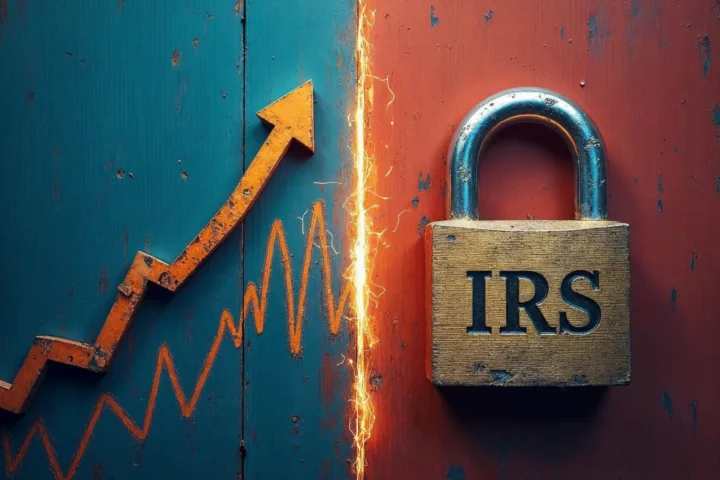Following the increasing interest in cryptocurrencies, several U.S. states are exploring the idea of establishing strategic Bitcoin reserves. This move is part of a broader trend to diversify state assets and potentially enhance financial stability. Here’s a detailed look at the states that are leading the charge:
Florida

The state of Florida is planning to launch a strategic Bitcoin reserve, with the goal of creating a safe and secure way to hold and manage its Bitcoin assets. The proposal has garnered support from key figures in Florida’s political landscape, including the Speaker of the Florida House and the state’s Chief Financial Officer. One way to build the reserve is by leveraging the state’s pension fund to invest in Bitcoin, which would provide a hedge against inflation.
Florida already has investments in digital assets, including $800 million in crypto investments, and the state’s Chief Financial Officer has urged other pension funds to consider investing in Bitcoin. The plan is part of a broader effort to promote the use of cryptocurrencies and blockchain technology in the state, with the goal of making Florida a hub for innovation and financial technology.
Pennsylvania

Pennsylvania state is considering creating a Bitcoin reserve fund, which would enable the state to allocate up to 10% of state funds exclusively to Bitcoin as a strategic hedge against inflation and an asset to secure the Commonwealth’s economic future.
The bill, led by Representative Mike Cabell, reflects a proactive stance in response to financial instability and inflationary pressures, and its adoption could accelerate nationwide adoption as other states observe the financial outcomes of a Bitcoin reserve strategy. Governor Josh Shapiro’s support will be crucial for the bill’s enactment, and with bipartisan backing, the measure aligns with Shapiro’s forward-looking approach to economic competitiveness.
Texas

The state of Texas, known for its tech-friendly policies, is considering creating a strategic Bitcoin reserve, which would allow the state to collect taxes, fees, and donations in Bitcoin and hold them for a minimum period. This proposal is being led by Republican State Representative Giovanni Capriglione, who believes that such a reserve would serve as a hedge against inflation and enhance the state’s fiscal stability. The proposed legislation would enable the state to start building a strategic Bitcoin reserve, which could potentially become a model for the US Treasury and other states.
According to Capriglione, the biggest enemy of investments is inflation, and a strategic Bitcoin reserve would be a win-win for the state. The plan does not involve taxpayer funding, and key provisions of the bill include allowing the state to collect and hold Bitcoin for at least a certain period. The Texas Blockchain Council has expressed support for the proposal, highlighting Capriglione’s leadership role in the matter.
Wyoming

The state of Wyoming is considering creating a Bitcoin reserve fund, with Senator Cynthia Lummis introducing the Bitcoin Act to establish a strategic Bitcoin reserve. The proposal aims to acquire up to 1 million Bitcoins over five years, with an initial acquisition of 200,000 Bitcoins, and hold them for a minimum of 20 years to reduce national debt and enhance the country’s economic strategy. This initiative reflects Wyoming’s commitment to fostering a robust digital asset ecosystem and leading the way in financial innovation, with the state having already introduced a digital asset registration act to enhance ownership rights and regulatory clarity.
The plan has gained support from former President Donald Trump, who has endorsed the proposal, and could potentially be realized quickly under the new administration. The establishment of a Bitcoin reserve could have a significant impact on the national debt and government deficit, with investor opinions indicating that it could be a prudent investment relative to the nation’s significant national debt. Overall, Wyoming’s plans to create a Bitcoin reserve fund demonstrate its position at the forefront of the digital asset revolution and its commitment to financial innovation.
Arizona

Arizona state is considering creating a Bitcoin reserve fund, with the Arizona State Senate passing a resolution to explore the possibility of investing in digital assets, such as Bitcoin, for the state’s retirement systems. The proposal suggests that the Arizona State Retirement System and the Public Safety Personnel Retirement System examine the viability of including digital asset ETFs, like Bitcoin ETFs, in their portfolios.
This move is part of a larger trend of states exploring the potential of Bitcoin and other digital assets, with other states like Florida also considering establishing a strategic Bitcoin reserve and adding Bitcoin to their pension funds. The idea of a Bitcoin reserve is gaining traction, with some proponents arguing that it could provide a hedge against market fluctuations and help to curb debt. Overall, Arizona’s consideration of a Bitcoin reserve fund is a significant development in the growing adoption of cryptocurrency in the United States.
South Dakota

South Dakota is one of several states actively exploring the creation of a strategic Bitcoin reserve. This move is part of a broader effort to promote the use of cryptocurrencies and blockchain technology in the state. The South Dakota Bankers Association has been actively involved in shaping the state’s approach to cryptocurrencies, and has helped to craft model policy proposals that aim to reject the adoption of central bank digital currencies and protect financial privacy.
The state has also updated its Uniform Commercial Code to provide legal certainty for transactions involving digital assets, which is expected to help the cryptocurrency industry thrive in the state. Overall, South Dakota is taking a proactive approach to embracing cryptocurrencies and positioning itself as a hub for innovation and investment in this space.
Oklahoma

Oklahoma state is considering creating a Bitcoin reserve fund, following in the footsteps of other states such as Texas and Pennsylvania. The proposed legislation would allow the state to collect taxes, fees, and donations in Bitcoin, which would be held for a certain period. This initiative aims to enhance the state’s fiscal stability while positioning it as a leader in Bitcoin innovation.
The idea of a strategic Bitcoin reserve is gaining traction, with multiple states and countries exploring similar legislation. A nonprofit organization focused on crypto policy, the Satoshi Action Fund, has been involved in the development of these proposals, which are designed to provide an alternative financial tool and leverage existing Bitcoin infrastructure. The conversations around Bitcoin reserves are ongoing, with several states and countries discussing the adoption of similar measures.
Tennessee

Tennessee is actively discussing the idea of establishing a strategic Bitcoin reserve. The state’s policymakers are evaluating the potential benefits and risks of such a move, with a focus on long-term financial stability and innovation. The plan aims to diversify the state’s financial assets and potentially generate revenue through the appreciation of Bitcoin’s value. According to recent reports, the proposal has gained support from some lawmakers who believe that investing in Bitcoin could provide a hedge against inflation and economic uncertainty.
The idea is still in its early stages, and it remains to be seen whether the plan will come to fruition, but it highlights the growing interest in cryptocurrency among state governments and institutions. As the concept of a Bitcoin reserve fund continues to gain traction, it will be interesting to see how Tennessee and other states navigate the opportunities and challenges associated with investing in digital assets.
Kentucky

Kentucky is another state that is actively exploring the creation of a strategic Bitcoin reserve. The plan is part of a broader effort to foster the growth of the cryptocurrency industry in the state, with major exchanges such as Coinbase, Binance, and Gemini already registered as money transmitters in Kentucky. The state has also enacted laws providing a framework for the commercial mining of cryptocurrency and its taxation, including a tax break for certain mining operations.
While the details of the proposed Bitcoin reserve fund are still emerging, it is clear that Kentucky is taking steps to position itself as a hub for cryptocurrency innovation and investment. The state is collaborating with the Satoshi Action Fund to ensure that any legislation is well-informed and carefully crafted.
Alabama

The state of Alabama is also considering similar initiatives, with State Auditor Andrew Sorrell being a vocal advocate for the move. Sorrell believes that a diversified investment strategy should include assets beyond traditional bonds and treasuries, and that Bitcoin has consistently outperformed other asset classes, making it a viable option for the state’s financial reserves.
This potential move aligns with a growing trend among US states to leverage crypto for economic stability, with other states reportedly exploring similar strategies. The authorization of Bitcoin and Ethereum exchange-traded funds has made it easier for states to invest in digital assets, and Sorrell argues that a Bitcoin reserve could help address debt, strengthen the US balance sheet, and protect against inflation. By adopting a strategic Bitcoin reserve, Alabama could be setting a precedent in state-level cryptocurrency strategies and potentially leading other states in this direction.
Conclusion
The movement towards creating strategic Bitcoin reserves is gaining momentum across the United States, with several exploring the idea of establishing strategic Bitcoin reserves. States such as Florida, Pennsylvania, Texas, Wyoming, Arizona, South Dakota, Oklahoma, Tennessee, Kentucky, and Alabama are leading the charge, recognizing the potential benefits of diversifying their assets and enhancing financial stability. By investing in Bitcoin, these states aim to hedge against inflation, reduce debt, and promote economic growth.
As more states consider adopting Bitcoin reserves, it is likely that this trend will continue to gain momentum, potentially paving the way for a new era of financial innovation and cryptocurrency adoption in the United States. With bipartisan support and growing interest from lawmakers, the concept of a strategic Bitcoin reserve is poised to become a major talking point in the world of finance, and it will be exciting to see how these pioneering states navigate the opportunities and challenges associated with investing in digital assets.










